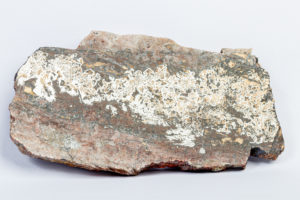Physical Properties of Bismuth
 Bismuth is a crystalline, brittle, metal that expands as it freezes. It’s the most naturally diamagnetic metal, which means it resists being magnetized, and it also has unusually high electrical resistance. Additionally, its thermal conductivity is lower than any metal except mercury, and it is capable of alloying with other metals like lead, tin, copper, and indium. Below is a summary of its’ physical properties:
Bismuth is a crystalline, brittle, metal that expands as it freezes. It’s the most naturally diamagnetic metal, which means it resists being magnetized, and it also has unusually high electrical resistance. Additionally, its thermal conductivity is lower than any metal except mercury, and it is capable of alloying with other metals like lead, tin, copper, and indium. Below is a summary of its’ physical properties:
- Atomic Number: 83
- Symbol: Bi
- Appearance: Silvery white with slight pinkish tinge
- State at room temperature: Solid
- Density: 9790 g/cm3
- Melting Point: 1564 Celsius (2847 F)
- Brittle: Bismuth is brittle
- Poor Thermal and Electrical Conductivity
- High Hall Effect: The greatest increase in electrical resistance when placed in a magnetic field
- Diamagnetic: The most of all metals
- Expands on Solidification: Bismuth expands approximately 3.32% when solidifying from a molten state, which makes it suitable for casting sharp objects
Applications for Bismuth
Bismuth is offered in a variety of forms and sizes and used as a low melting alloy in a range of applications. Some of these include:
- Fire detection and extinguishing
- As a replacement for lead in shot and bullets (bismuth-tin alloy)
- Soldering
- Boilers
- Water Heaters
- Bonding
- Surface coatings for corrosion resistance
- Fixturing
- Tube bending
- Grinding of lenses
For more information, FREE Technical Assistance and current pricing on Bismuth, contact 844-564-6087, email sales@mayeralloys.com or fill out the form in the Request a Quote link below.844-
Request A Quote
To get a quote, please fill out the form below. You can also contact us at 844-564-6087 or via email at sales@mayeralloys.com.
"*" indicates required fields
Request a Bismuth quote here.